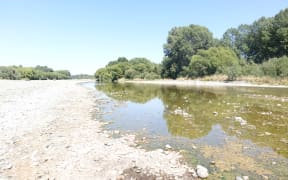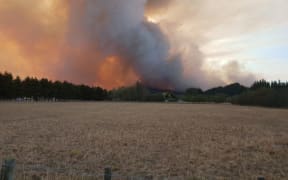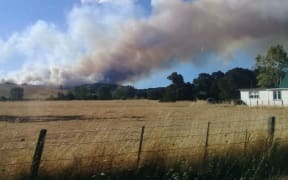Nelson-Tasman is struggling with its driest weather in decades, with Golden Bay now in a one-in-20-year drought.
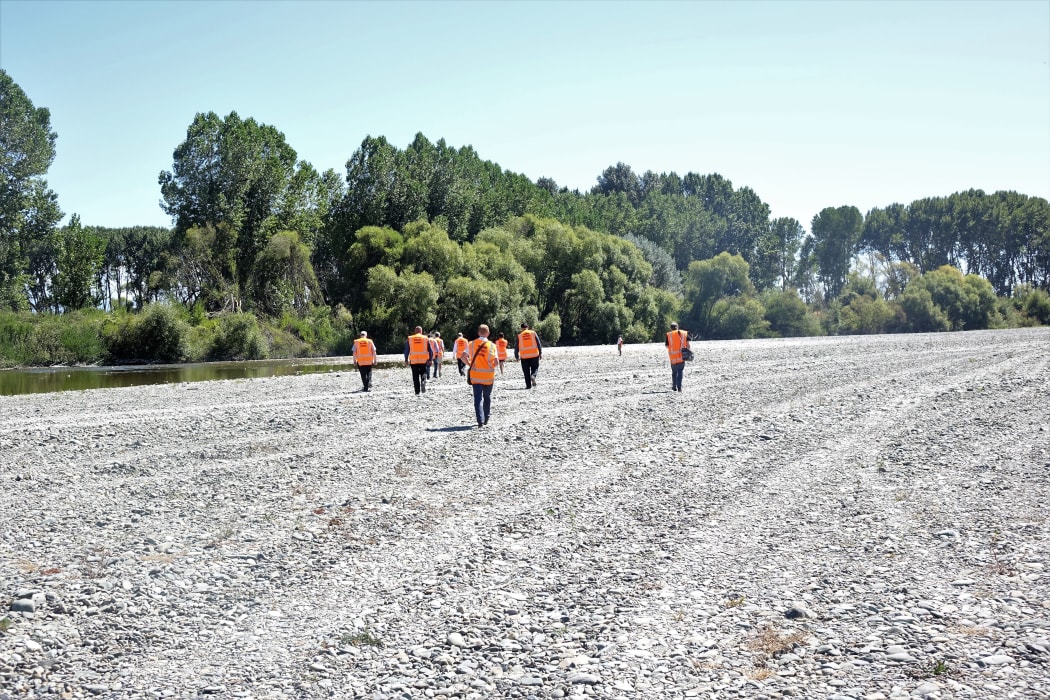
Waimea River in its current state as the region gets to grips with the extremely dry weather. Photo: RNZ / Tracy Neal
The district's already ailing farmers and growers are in some areas operating on about 30 percent of their normal water allowances for irrigating crops.
In urban areas like Richmond and Mapua, gardens have dried up due to the total ban on watering.
Meanwhile, the State of Civil Defence Emergency will now be extended a further week as firefighters continue to battle the Tasman fire.
Senior water scientist Joseph Thomas said it had not been this bad since 2001; a view echoed by dairy farmer Wayne Langford, who has been farming in Golden Bay for 19 years.
"So there was a big drought in 2001 - that was the last big dry we had, and the farmers I'm talking to are certainly saying it's really starting to get worse than that."
Mr Langford milks 250 dairy cows on his 90ha Kotinga property. He described how it currently looked.
"On my farm there's a paddock I grazed on the 8th of January and that paddock has grown nothing since then," he said.
"In fact, it's almost gone backwards since then."
Waimea Plains fruit grower Julian Raine said it was looking grim.
"I haven't seen the Waimea Plains this bad since I've been growing fruit and I started in 1981. So the scientists are telling me there is no available moisture down for the first 90cm."
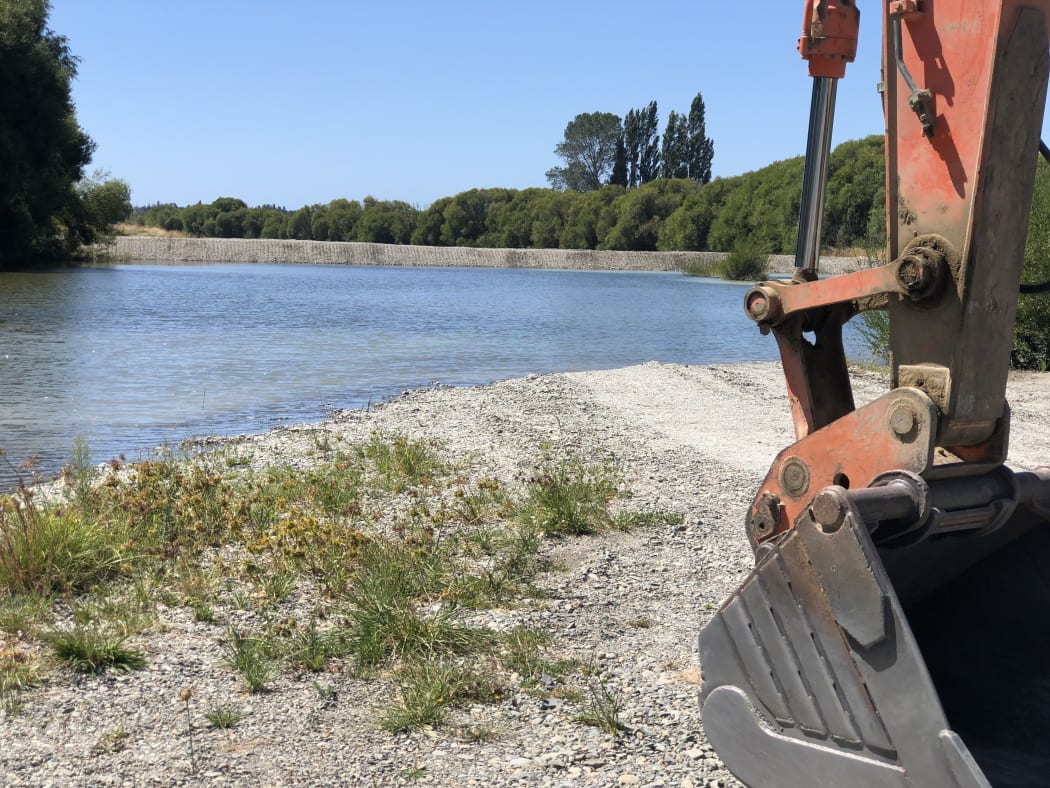
Tasman District Council has used emergency powers to build a bund across a section of the Waimea River, to try and stop sea water getting into fresh water supplies Photo: Supplied / Tasman District Council
Mr Raine said that meant only crops with a root system longer than that were able to get water from the ground.
Or from irrigation, but that had now been cut to drastic levels.
"As of yesterday we've only got 35 percent of our consented [water] take so... we're under extreme pressure here."
Some of the ground water in coastal areas was under threat from salt water getting into the aquifers, with the current king tides.
Tasman District Council has used emergency powers to build a bund across a section of the Waimea River, to try and stop sea water getting into fresh water supplies.
The head of Tasman's Dry Weather Taskforce says the gravel bund was merely buying them some time.
Dennis Bush-King said if it did not work, then water restrictions tougher than the 65 percent cut already in place for some, were on the way.
"I'm hopeful that it [the bund] will slow things down a little bit and we might be able to stay at 65 percent for another week.
"If the salt comes up the river it can spread out, and if we're not careful it can get into the underground aquifers."
Mr Bush-King said numbers were being crunched now on the economic impact of the dry weather.
Mr Raine said it was already beginning to bite.
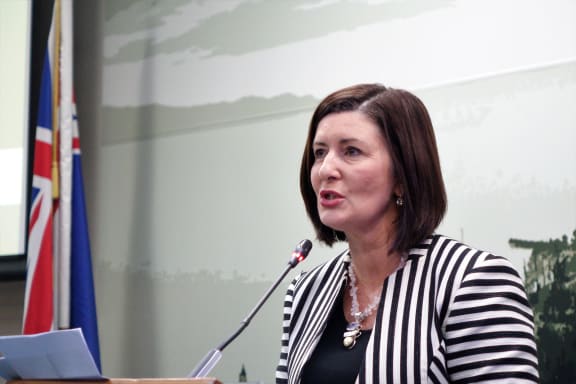
Nelson Mayor Rachel Reese. Photo: RNZ / Tracy Neal
He said as the water cuts worsened, they needed to consider which crops to save.
"We've tried to match water availability with the best paying varieties that we've got, and as the water goes down, we're getting worse off financially."
The dry weather is not restricted to Tasman - it was starting to cause pain across the top of the South Island.
The Nelson City Council, which has imposed Stage Two water restrictions, leading to a ban on the use of garden sprinklers, aimed to increase its supply of water to Tasman from 800 to 2000 cubic metres of water a day.
Nelson Mayor Rachel Reese was also encouraging Nelsonians to voluntarily cut water use.
*The Civil Defence State of Emergency has been extended by a week in the Tasman region, due to the wildfires which began two weeks ago. The Civil Defence Controller, Roger Ball, says the risks remain and firefighters will be on the ground for sometime.

